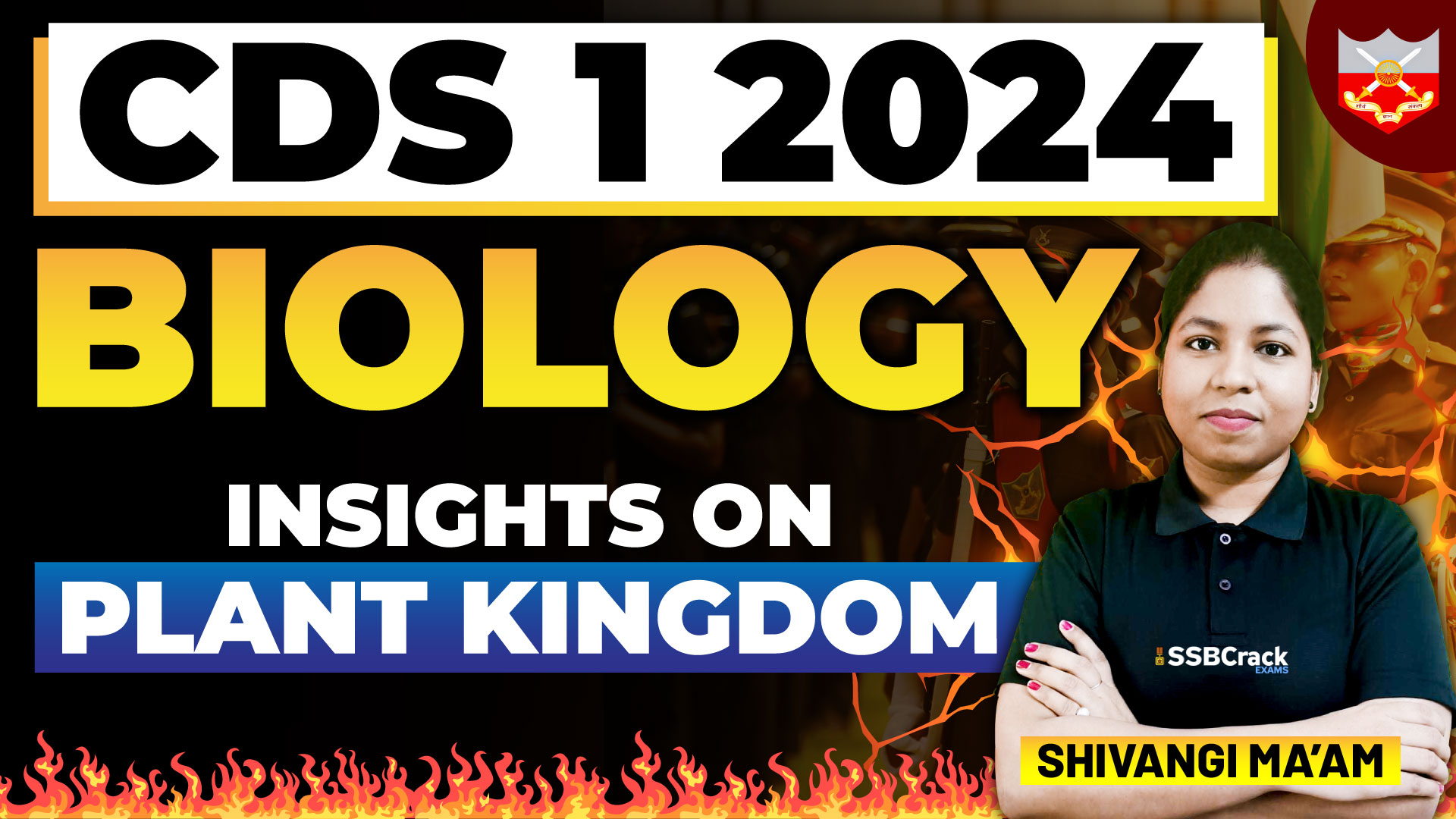Aspiring candidates preparing for the Combined Defense Services (CDS) Exam in 2024 undoubtedly recognize the significance of mastering diverse subject areas, including biology. Among the various domains of biology, understanding the intricacies of the plant kingdom holds paramount importance. Not only does it offer insights into ecological systems crucial for defense studies, but it also forms the basis for understanding agricultural practices, environmental conservation, and biodiversity preservation. Here, we delve into essential insights into the plant kingdom that can serve as valuable assets for CDS exam preparation.
1. Plant Classification: Understanding how plants are classified is fundamental. The plant kingdom is broadly categorized into several divisions based on various characteristics such as the presence of vascular tissues, reproductive structures, and specialized adaptations. Familiarity with these divisions, including Bryophytes, Pteridophytes, Gymnosperms, and Angiosperms, is essential for grasping the evolutionary progression of plants and their ecological roles.
2. Morphology and Anatomy: A thorough comprehension of plant morphology and anatomy is indispensable. Candidates should be well-versed in the structural features of roots, stems, leaves, flowers, and fruits, along with their functions. Additionally, understanding the anatomical adaptations of plants to diverse environments equips aspirants with insights into plant ecology and adaptation strategies.
3. Reproduction and Life Cycles: Plant reproduction encompasses a variety of mechanisms, including sexual and asexual reproduction. Knowledge of the reproductive structures of plants, such as flowers, seeds, and spores, is vital. Furthermore, familiarity with the alternation of generations in plants elucidates their complex life cycles and ensures a comprehensive understanding of their reproductive strategies.
4. Plant Physiology: An understanding of plant physiology elucidates the mechanisms underlying essential processes such as photosynthesis, respiration, transpiration, and nutrient uptake. Proficiency in topics such as plant hormones, tropisms, and environmental responses provides insights into plant growth, development, and adaptation to changing environmental conditions.
5. Economic Importance and Conservation: The economic significance of plants cannot be overstated. Candidates should be aware of the vital roles plants play in providing food, medicine, shelter, and various raw materials essential for human civilization. Furthermore, understanding the importance of plant conservation and strategies for biodiversity preservation is crucial for addressing environmental challenges and sustainable development.
6. Recent Advances and Innovations: Staying abreast of recent advancements in plant biology is advantageous. Awareness of innovations such as genetic engineering, biotechnology applications in agriculture, and efforts toward crop improvement enhances candidates’ perspectives on contemporary issues in plant science and their implications for defense and national security.
7. Interdisciplinary Connections: Recognizing the interdisciplinary nature of plant biology is key. Integration with other disciplines such as ecology, genetics, environmental science, and biotechnology provides a holistic understanding of plant systems and their broader implications for defense studies, resource management, and sustainable development initiatives.
In conclusion, a comprehensive understanding of the plant kingdom is indispensable for aspirants preparing for the CDS Exam 2024. By delving into plant classification, morphology, anatomy, reproduction, physiology, economic importance, conservation, recent advances, and interdisciplinary connections, candidates can equip themselves with the knowledge and insights necessary to tackle questions about plant biology with confidence. Moreover, this understanding lays the foundation for addressing complex ecological, agricultural, and environmental challenges critical for defense and national security in the 21st century.







